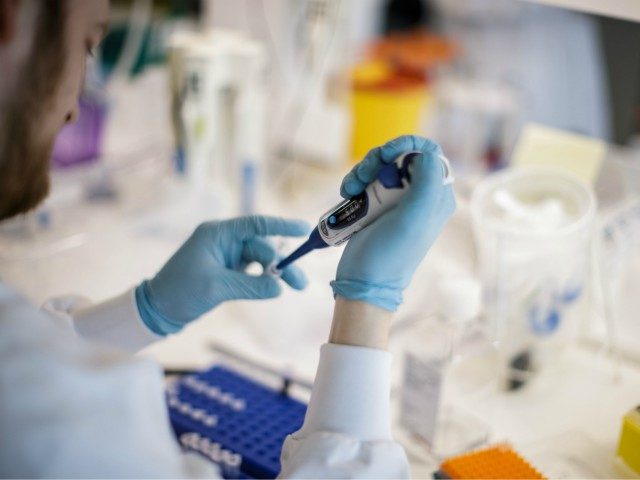Chinese state media admitted Wednesday that a brucellosis outbreak in northwestern China caused by a state-run vaccine manufacturer’s negligent use of expired air filters was “worse than earlier revealed,” as the number of confirmed cases of the bacterial disease continues to rise.
“A total of 3,245 people had tested positive for Brucellosis as of Monday in Lanzhou, Northwest China’s Gansu Province, after a local Brucella leakage in July-August 2019. The number is way more larger [sic] than expected and raised widespread concern over the disease’s spread and its consequences,” the Chinese Communist Party (CCP) mouthpiece Global Times reported.
“More than 21,000 people had been tested [for Brucella bacteria antibodies] as of Monday, of whom 4,646 had initially been classified as positive, with 3,245 confirmed positive by the Gansu Provincial Center for Disease Control and Prevention,” the China News Service reported on Wednesday. The report did not clarify what was meant by “classified as positive,” though it could mean that the patients presented symptoms of brucellosis.
According to a report on the outbreak by Beijing-based news site Caixin Global on Tuesday, “Diagnosing brucellosis is complicated as it often presents symptoms similar to common diseases like flu and rheumatism. According to the brucellosis treatment standards issued by the [Chinese] National Health Commission in 2019, brucellosis should be diagnosed through epidemiological contact tracing, clinical manifestations, and laboratory tests.”
A doctor at Lanzhou No. 2 Hospital who treated suspected brucellosis patients there after the outbreak told Caixin that the hospital admitted about 100 residents from the Yanchangbao neighborhood near the Lanzhou Biopharmaceutical Plant in late December “all with relatively severe symptoms.” He added that “the patients were confirmed with Brucella bacterium infection based only on antibody tests, rather than being diagnosed with brucellosis.”
The bacterial disease commonly occurs in livestock such as goats, pigs, and sheep. Humans may contract brucellosis through close contact with infected animal tissue or by ingesting unpasteurized dairy products from infected animals. Symptoms include fever, joint pain, and fatigue. Though rarely deadly, brucellosis can cause chronic health problems and damage reproductive health.
Reports early this week about Lanzhou’s brucellosis outbreak “triggered widespread public concern [in China] over the treatments and consequences of the infected patients, as the topic climbed to the top of the search bar on China’s social network Sina Weibo, with more than 48 million views as of Tuesday evening,” according to the Global Times.
The Lanzhou Health Commission says it will offer compensation in October to people who contracted brucellosis because of the vaccine plant leak last year.
On December 26, local health authorities announced that the state-run Lanzhou Biopharmaceutical Plant “used expired sanitizers while producing Brucella vaccines between July 24 and August 20” last year. “This resulted in the bacteria entering the factory’s exhaust and infecting people nearby,” officials said, according to Caixin Global.
“There are more than ten communities with a combined population of more than 10,000 located within one kilometer of the plant,” the news site noted.
The Lanzhou brucellosis outbreak is the latest Chinese vaccine corruption scandal to rock the country in recent years. Despite the Chinese government’s ongoing struggle to safely produce and administer standard vaccines to citizens, the CCP insists that it will soon release an experimental Chinese coronavirus vaccine, whose rollout has been trumpeted by state media for months.

COMMENTS
Please let us know if you're having issues with commenting.